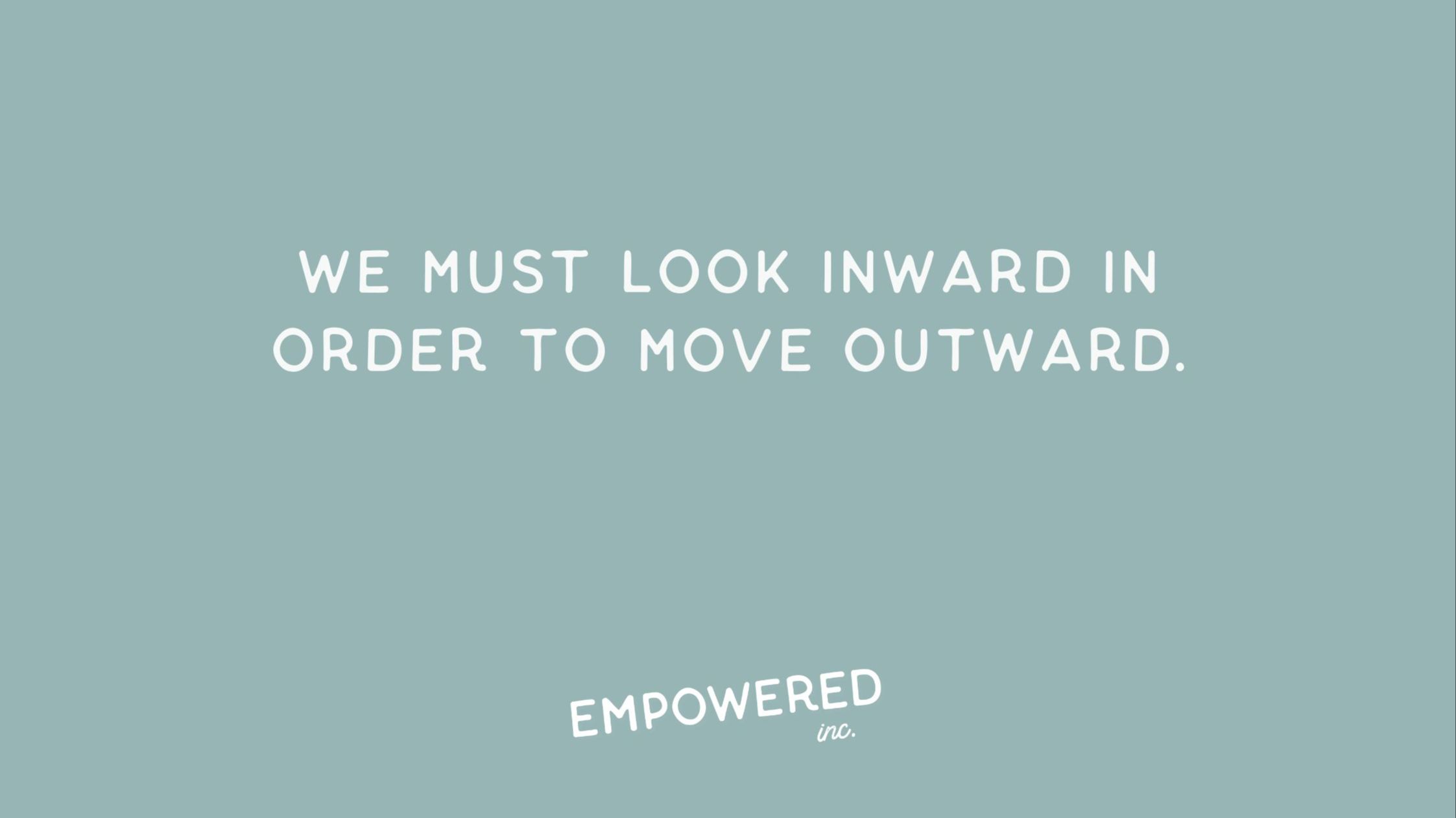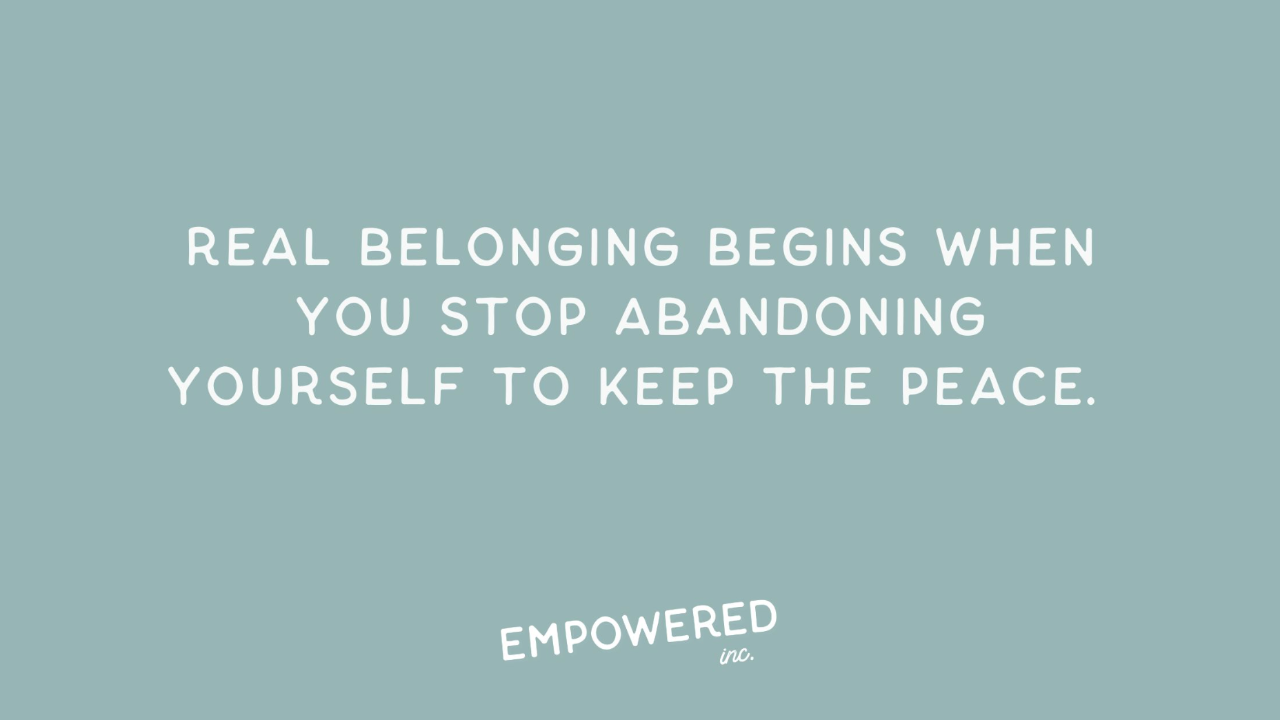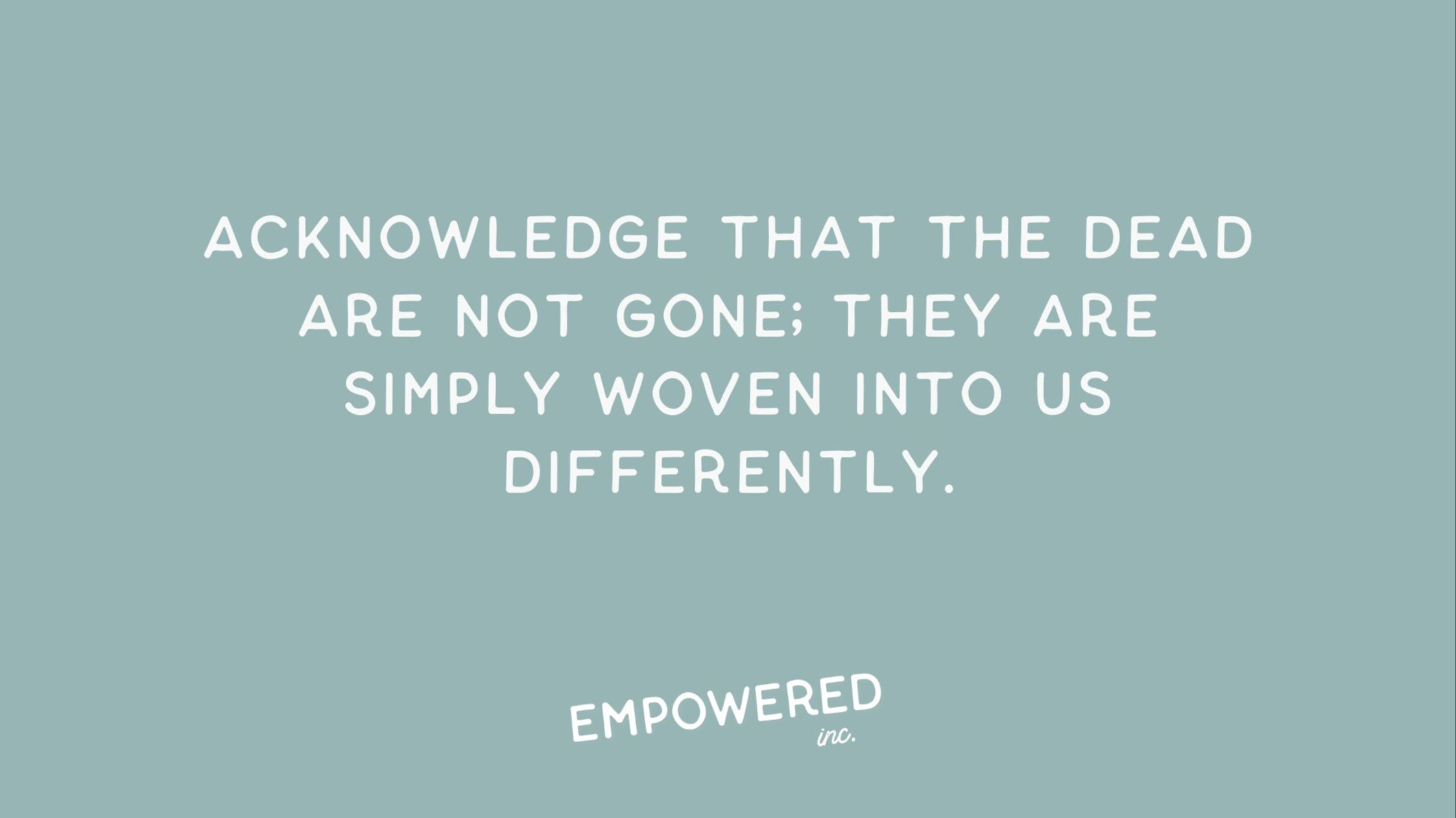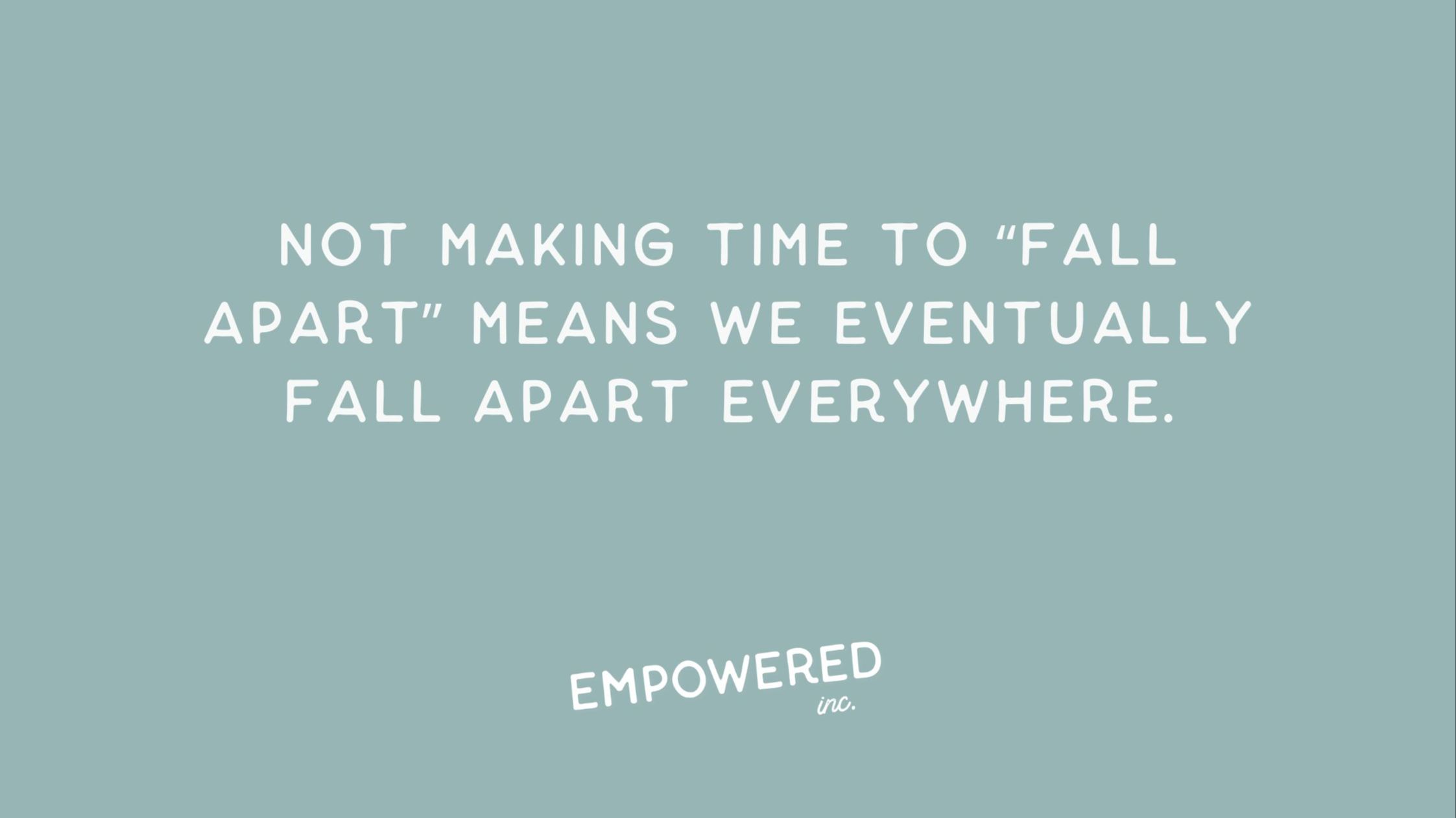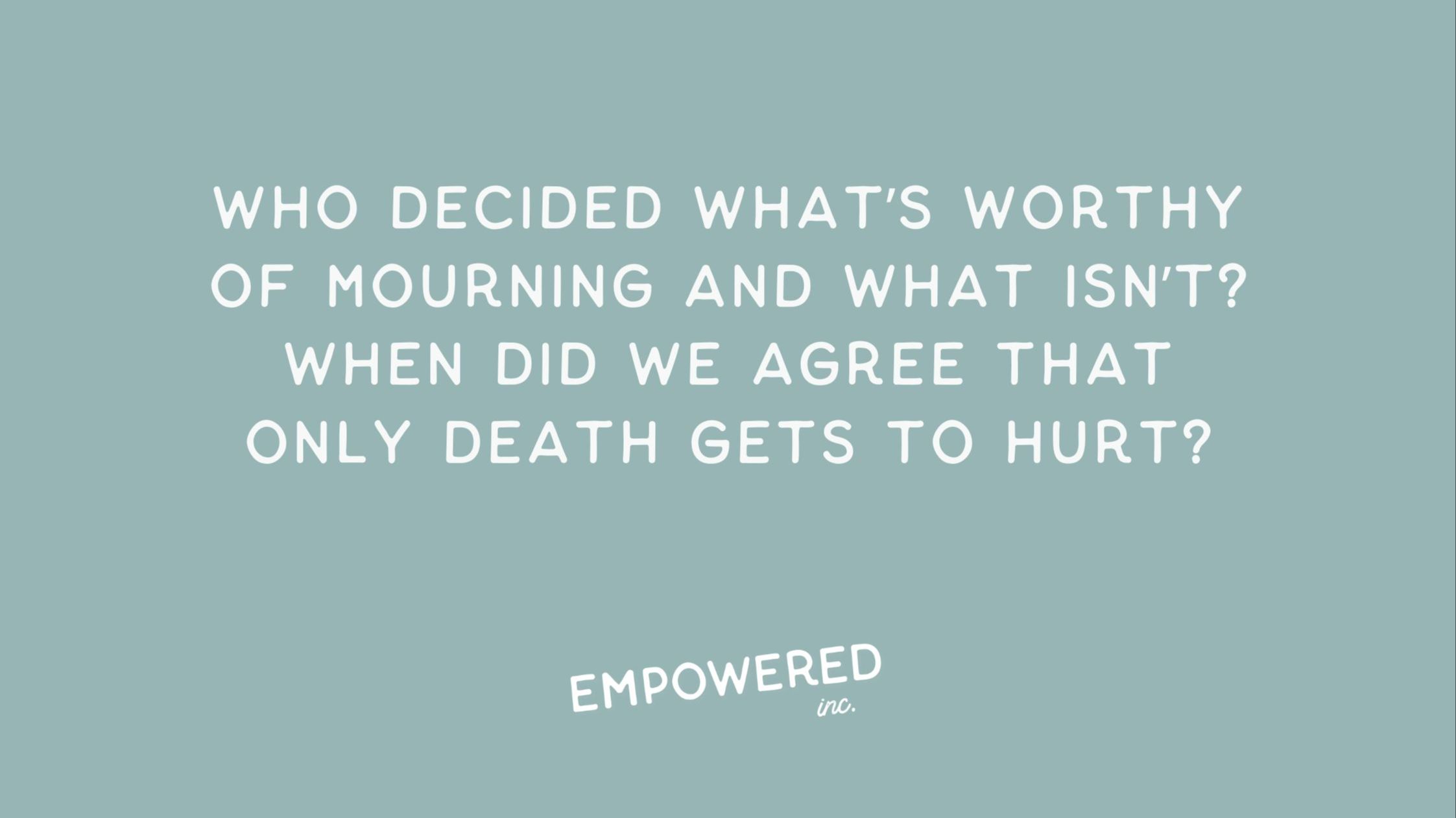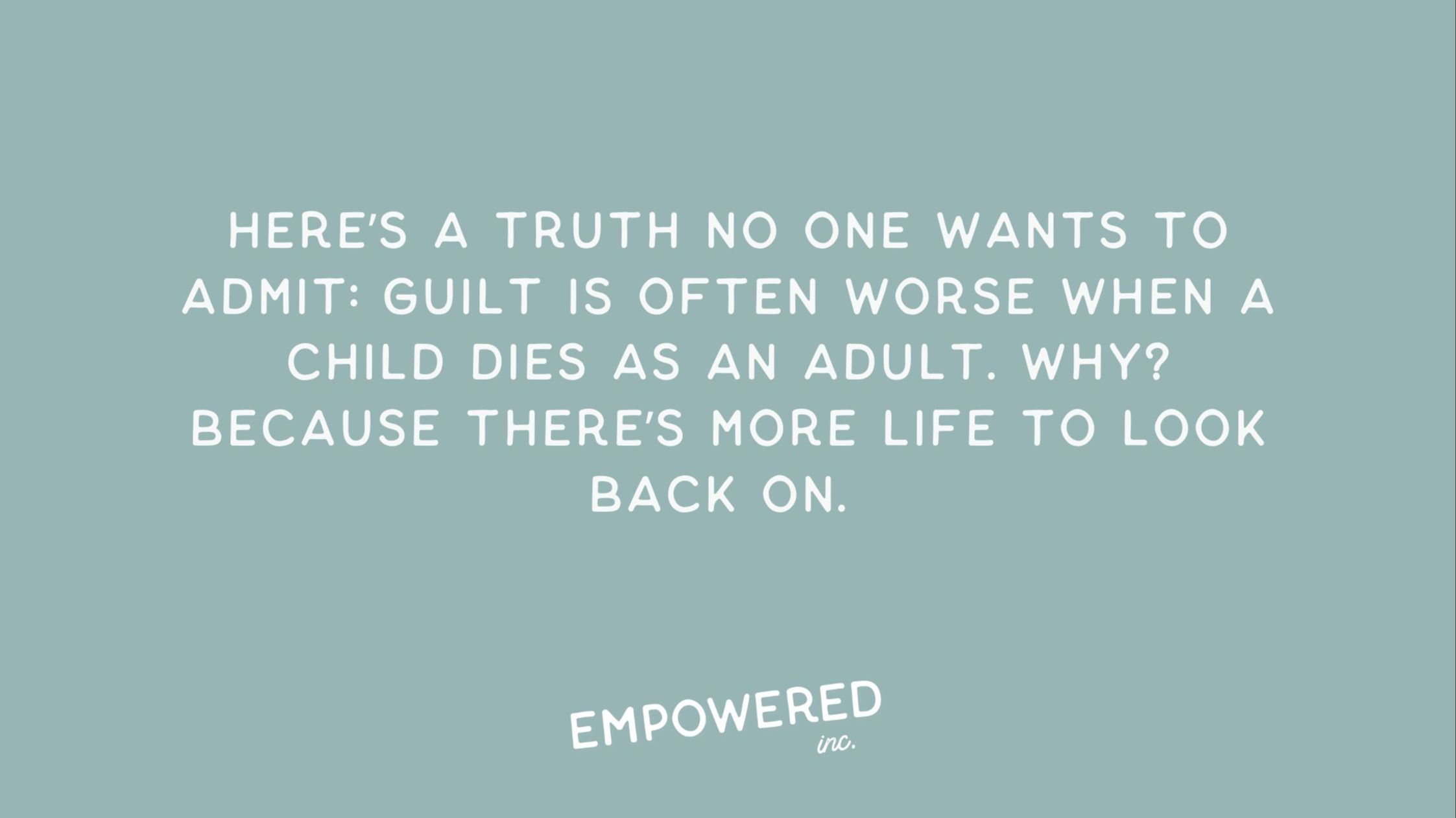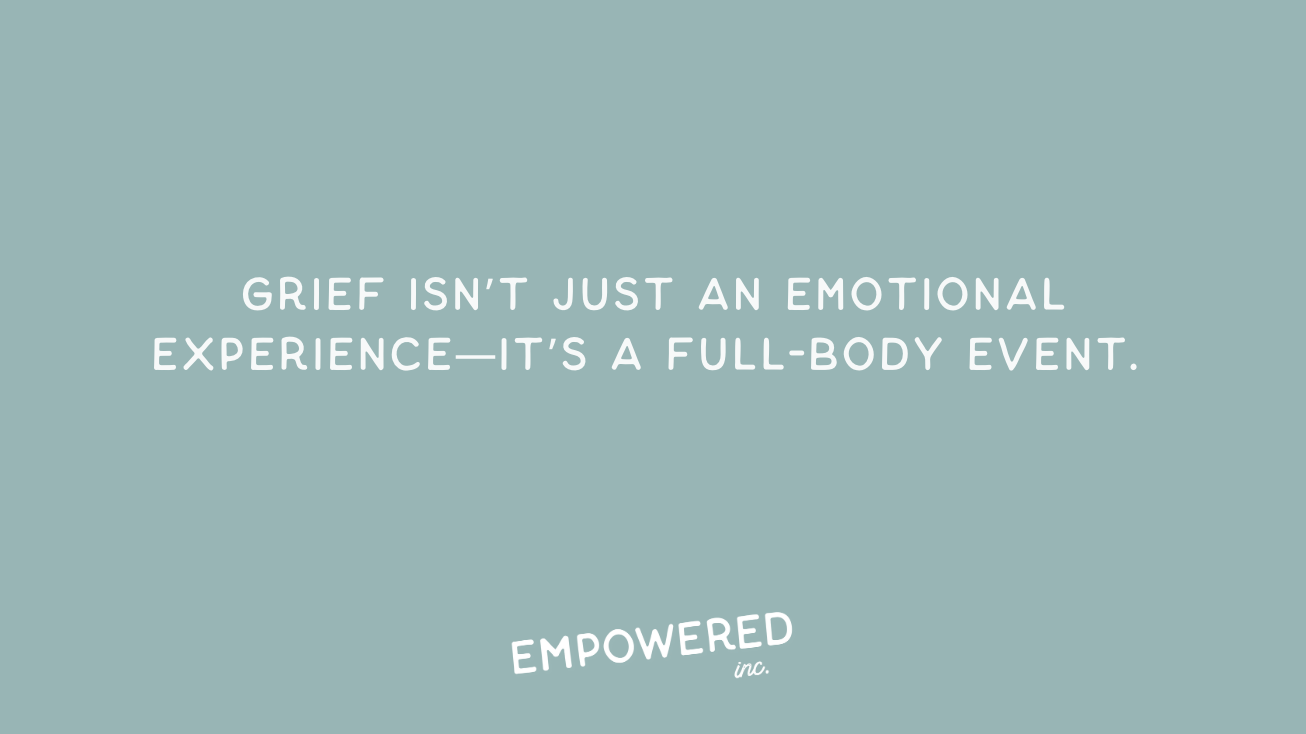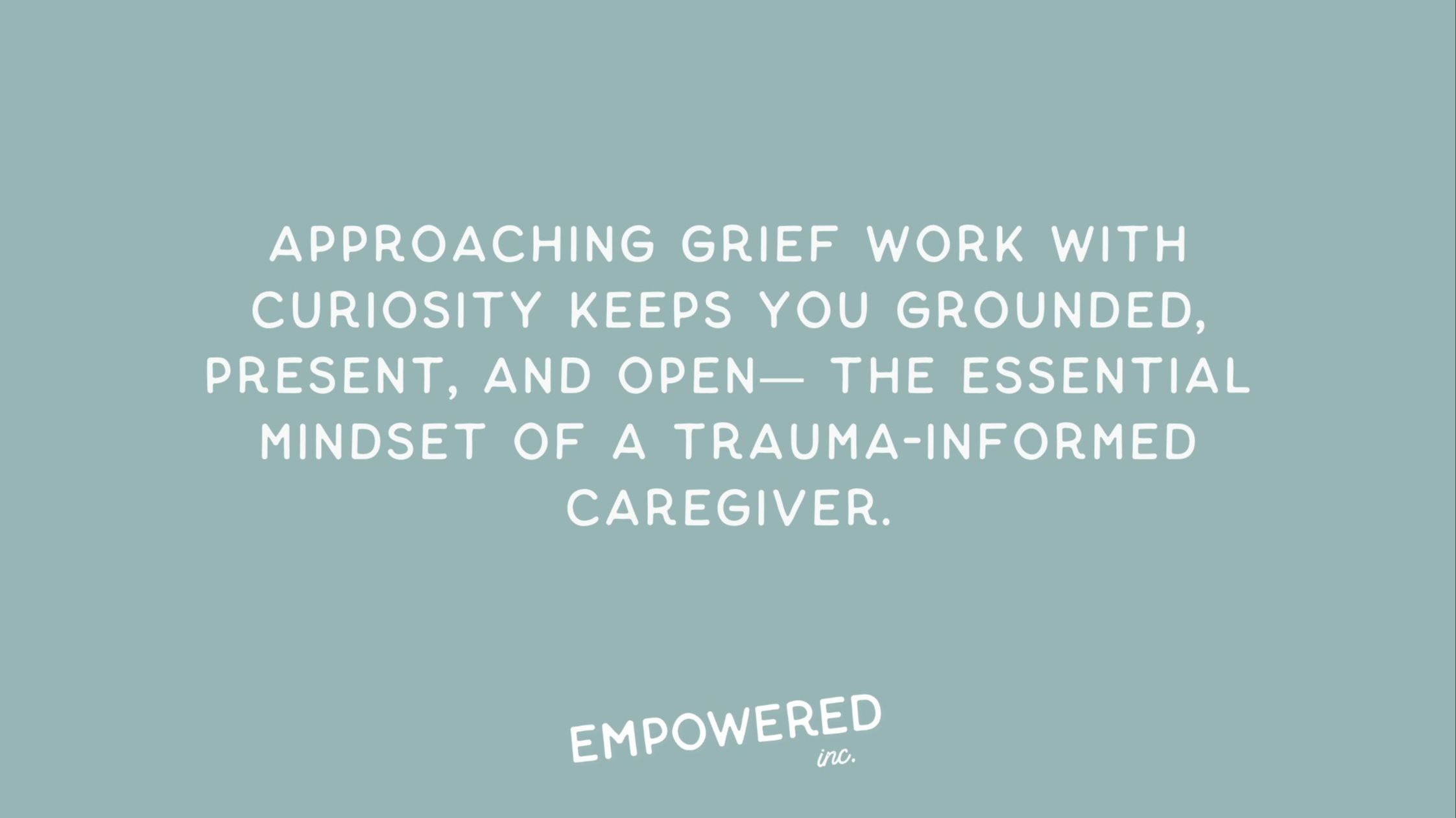Why a new year and new year goals doesn’t erase our pain, and how to honour your grief
What if you don’t want to start fresh this year? What if you’re not ready to “step forward,” “move on,” or “step into a so-called new version of you”? What if the past year still has a grip on you—and you’re n...
Discover how inviting the darkness this solstice can help you grieve and heal.
Darkness as Teacher
Darkness is often shunned in our society. It’s associated with sadness, anger, despair, and hopelessness—a heavy place to escape.
And if we’ve lived through loss or trauma, those associations ...
How to Stop Pretending And Set Boundaries
You can only pretend to be fine for so long before something in you starts to ache for truth. The smile, the small talk, the polite answers to questions that scrape against the edges of your grief.
When you’re moving through loss, pretending can start ...
What Halloween Can Teach Us About Grief
There is a concept called “thin space” in Celtic culture. It is considered to be a space where those who have passed are more “available” to us. This space can be physical, experiential, even metaphorical.
This thin space can be terrifying, beautiful ...
How to Acknowledge Grief and Heal
We live in a culture that tells us to “keep busy,” and “move on” when loss happens. Productivity is praised, even in our most painful seasons. But grief doesn’t disappear because we ignore it—it waits.
And while it waits, it builds.
Imagine a bottle of pop. No...
Giving voice to the less visible, less socially acknowledged forms of grief people carry in everyday life
We’ve been sold a lie about grief.
Grief has been packaged neatly into funerals, eulogies, and casseroles. Society says you get to grieve when someone dies—and that’s it. But here’s the ...
How Unprocessed Grief and Perfectionism Are Sabotaging Your Practice
In order to help others heal, we must look within ourselves first.
We must sit with our own pain, process our hurt, so that we can be with others. We need to model “good” self care for not only our clients, but for ourselves....
What grief looks like when you lose a pregnancy — and how to heal.
When you're planning for a family, nobody hands you a manual for loss. No one warns you that the same body you pin your hopes to can feel like a traitor. And no one tells you how isolating it is to lose a future no one else ever ...
What to do when your adult child has died.
No parent plans for this. We tell ourselves there’s a natural order to life: we go first, they carry on.
When you become a parent, you don’t imagine burying your child—especially not after they've built a life of their own. You imagine watching the...
Why grief can lead to substance use and how to get help.
Grief is a complex, deeply personal experience—it changes people.
In the wake of loss, many reach for anything that offers a moment’s peace, and too often, those coping mechanisms come with consequences that quietly unravel lives.
O...
Start strong in your grief work: what every new grief specialists should know.
“Real understanding is a creative mixture of certainty and unknowing. The trick is to know when you don’t understand.” ~ Thomas Moore
You’ve completed your training as a therapist, grief specialist, or caregiver...
How to accept grief and learn how to live with loss
Grief is a deeply personal and often overwhelming experience. It can feel like a storm that comes in waves—sometimes gentle, sometimes all-consuming. While loss is an inevitable part of life, learning how to navigate grief in a way that honors ...

